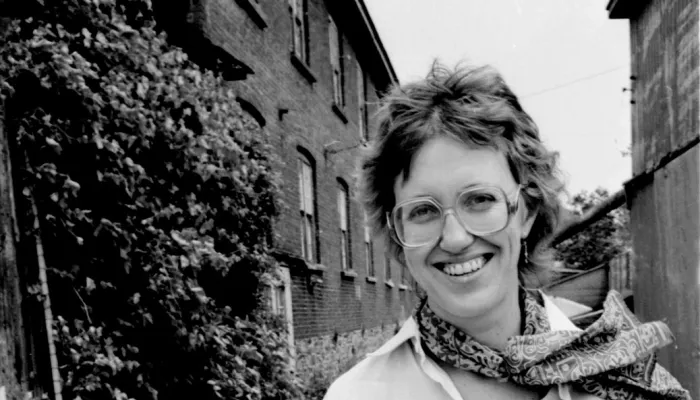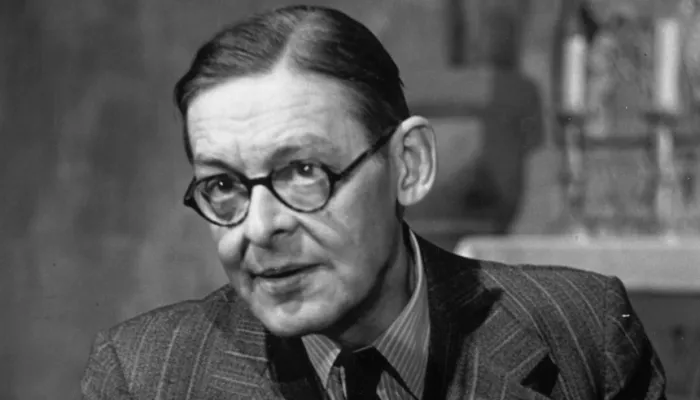Kristian Enright
Biography
Kristian Enright received the John Hirsch and Eileen McTavish Sykes Awards for his first full-length book, Sonar, and has been shortlisted for the Robert Kroetsch Innovative Poetry Award, as well as the Matrix Litpop Award and is currently working on his next book, Postmodern Weather Report. His subjects of interest include: mental illness, philosophy, the environment, urban awareness, consciousness itself, and the purpose of art. He is also at work on a collection of short stories that all center around conversations in unusual contexts, a message we may need in divisive times. His more long-term project is a protest play called Pipelines, that is an examination of the role of art in the climate crisis, and he is forming a course about the depathologization of mental illness.
Micro-interview
I did, although not a great deal at first. I was of course exposed to it in English classes throughout my education, but I think that despite occasional exposure to poems I somewhat enjoyed, I was seeking a voice like my own, and it took a while before poems really spoke to me though the exactitude of their diction seemed to be mysterious to me: how did they reach beyond the conventions of prose? was a question on my mind in the beginning, that experience itself would answer. I also met a poet in Ottawa for a program called "Encounters Canada," and he ended up doing a blurb for my first full-lenght book many years later. His name was Michael Dennis, and I began to read his work as well, which helped prepare me for some of the problems in life I was just beginning to fathom, including survival itself and the difficulties of relationships. There was also a publication in Rolling Stone Magazine where Jim Morrison's early poetry was released and it really spoke to me, as it was imagistic in a haunting way and some of its observations were codedly mysterious to me as well. And yet, the poetry was not extremely ambitious, in that it was not trying to systematically transform opinion through a demonstration of human illusion or "justify the ways of God to humanity" as with Milton. It was more confessional in an obscure sense, representing more private experience but in a visionary and subtle way. In rational moments, poetry just seemed the result of some of the tricks writers knew that you attained through some kind of apprentiship with other literary conspirators, though, at other times, it seemed something entirely from the aether, "a visitation of energy" as Jim Morrison put it in one of those early poems, some of which were composed when he was still in high school.
Yes, I think one of the early poems I liked was called “Ars Poetica” from a Postmodern collection of poetry I had, though I think the poem that I may have loved the most was "Howl" by Allen Ginsberg. It seemed to express some of the experiences I was still processing, and it was both extreme in its depictions, but also somewhat narrative, as one would receive from a careful witness through all sorts of bizarre experiences. It seemed like something you could only write after you had escaped from a dystopia and it was unquestionably visionary, which made it seem transcendent, but only after going through everything that was depicted in it, and this could be a source for my poetics now as I have written about mental illness as an experiential phenonmenon that involves the irrational, a major part of my early writing.
I wrote my first intentionally bad poetry when I was about twelve, but I did not take it seriously until I was about fifteen, when I discovered the poet Jim Carroll, whose work, “Fear of Dreaming” completely reshaped the concept of a poem I had, which was fairly complacent and not technically explorative. It took me another three years before I wrote anything that represented the forming poetics I had (which I will explicate below) and this was related to my studies of the avant garde literature of the Beat Generation, which I think enabled me to consciously see the poet as a rebellious figure, still in the hot pursuit of beauty, though also consumed by a hunger for experience, sometimes in a transgressive sense. Rather than an impersonal and critically-distanced figure, I felt that I could re-represent the world through language and yet, it was in my mid-teens that I experienced a hosptialization that threatened my existence and it was here that a more serious agenda emerged, and I wanted to explore this through language more than any other artistic medium, particularily as music and drawing were both of interest to me. My father was a public intellectual who had a consuming love for language and his influence was not merely supportive, but mutually conspiratory. As I began to read more diversly, I also began to participate more in the community of the writers around me whom I considered to be serious professionals, the professors who were part of the prairie poetry aesthetic such as Dennis Cooley and Robert Kroetsch. I am not sure if now I consider myself a "professional" poet even as I have published books, studied poetry, and won awards for my work, and this relutance is perhaps a residue of my initial identification with the rebellious street-smart poetry of Carroll that depicted such dissonance and attitude. As a poet who now writes about mental illness, I am imagining how I can re-think the language of cognitive disturbance as a philosophy, though now I am working to be an ecological poet with the work I am doing now for my upcoming book. But in my late teens, I basically began to feel it was my purpose to write poetry more than any other literary genre, and, to some extent, I would argue that converting my confusion into writing was one of the things that kept me sane through the worst times. I might have started writing poetry earlier if I had found the right poets that spoke to me, but early on I did not want to sound grand, I just wanted to amuse my friends with stupid poetry as alluded to early on in this paragraph. I suppose I was, as I think it now, an apprentice poet for a while as I began to involve myself in the poetry scene here in Winnipeg and that I would be a poet if I wrote a great poem (still not sure if I have done that!) even as now I am more commited to the process. It would require a memoir to make all of these claims clearer in the sequencing of time, as much of that period of my life was volatile and discombobulating.
I would answer this with the awareness that this "job" can change constantly according to the ability and opportunity one has in their life to write especially if it is more than a mere hobby, as for me it is a great passion and something intrinsic to my identity. I think the most general answer I would offer is that, like many forms of art, this job is to enhance consciousness for reader and writer, but this in itself is quite imprecise in that the question to what purpose this consciousness engages. I think the goal is often to work at representing that which is near ineffable and also to be a critic in the most liberated sense. Even satirical critiques can be a beginning stage, as I practiced when I was younger, but now, I suspect, the poet's job is to work through one's subjectivity in order to strentghen not just the mind, but to deal explicitly with feeling, as I beleve in re-uniting the dissociation of sensibility's severed parts. The poet's duty can also be to celebrate value and a culture's ideas or ideals, even as being critical of it is just as consciousness-raising as mere sycophantry, and as with the transcedental poets, one can praise solitude and reject larger values. This just goes to demonstrate that subject matter in poetry could conceivably be anything. There are probably lots of nuances regarding why a poet writes, and this may also be an early phase that changes when/if the poet decides to be serious (I will also assume that is the general poet for this question). But I also think that, to some extent at least, being a poet is to be a diplomat for poetry itself, and that includes being different ideas of the poet, which could well vary beyond my brain's enumerations. This point leads to your organization, Poetry In Voice, and working with younger people, as this is a key activity, and I think that being at a later stage, this particular promotion is one of my responsibilites, and I gain much encouragement from the precocious talents and interests of younger poets. I would still like to do more as a poet, and hope I can continue to find ways to be out in the world, even as to some extent, I still write for myself. Despite the meaning and value that poetry has given me, I may have to accept fully that it is not a solution to all problems for all people, despite that it can seem to be in my ideology.
“Death of a Young Son by Drowning” by Margaret Atwood.


